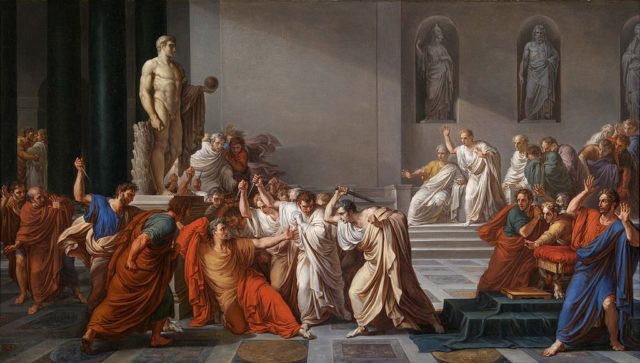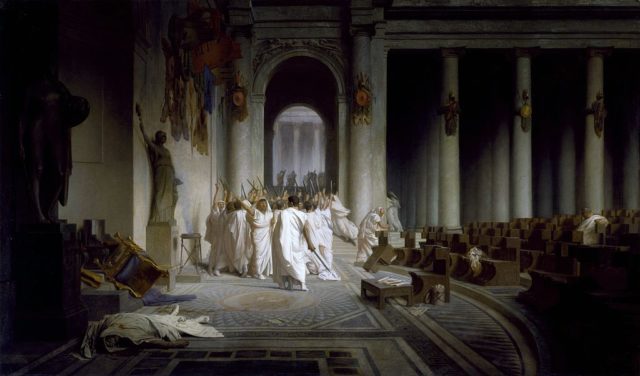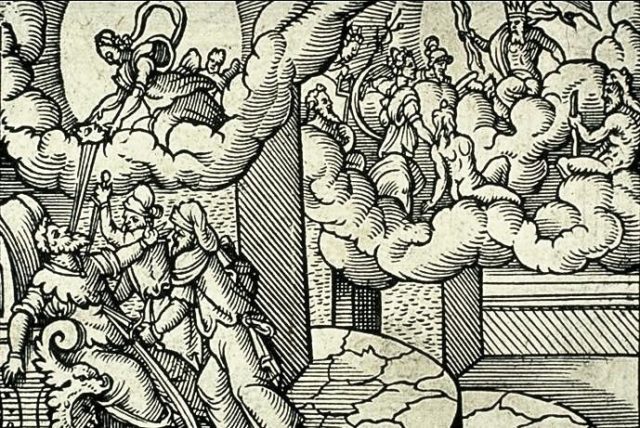The assassination of Julius Caesar is definitely among the most famous assassinations in history.
Julius Caesar, originally an army general, rose to a position of unparalleled power and wealth after assuming control of the Roman government during Caesar’s Civil war.
Caesar was instrumental in the fall of the Roman Republic and the installment of the Roman Empire and was the absolute dictator of the Roman territories. Caesar’s power enraged many senators of the time, and the bravest of them formed a pact to assassinate him.

The conspirators were Gaius Cassius Longinus, Decimus Junius Brutus, and Caesar’s adopted son, Marcus Junius Brutus. On the Ides of March in the year 44 BC the attackers cornered Caesar near the Theatre of Pompey and stabbed him 23 times.
In his historical analysis of the age of Caesar, Flavius Eutropius, a prominent Roman historian from the 4th century AD, extensively wrote about the assassination of Caesar and the immediate aftermath of the event. Flavius Eutropius stated that a detailed report of Caesar’s injuries was issued by a physician who performed Caesar’s autopsy, and this report is seen as the earliest documented post-mortem report in history.

According to the report, only one of Caesar’s 23 stab wounds was fatal. It was the one that punctured Caesar’s chest and ruptured his aorta. Some of the wounds were superficial and failed to protrude deeper than the muscle tissue, and several wounds were deep but missed any of his vital organs.
Caesar’s exact last words remain unknown, but many contemporary historians praise the account of another prominent Ancient Roman historian named Suetonius, who claimed that Caesar said: “You too, child?” He reportedly muttered those words in pain when he saw that his own adopted son was one of the conspirators.

After Caesar was killed, Brutus and his co-conspirators fled the scene and rushed to escape Caesar’s guards. While fleeing, some of them cheered and yelled: “People of Rome, we are once again free!”
Although the efforts of the conspirators caused the death of the most powerful person in Rome, they failed to re-establish the Roman Republic. Several years after Caesar’s death a series of civil wars resulted in the rise of the Roman Empire.
